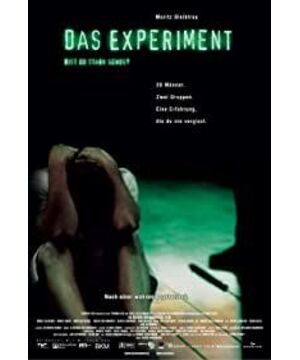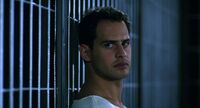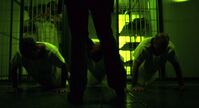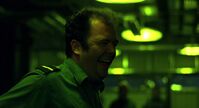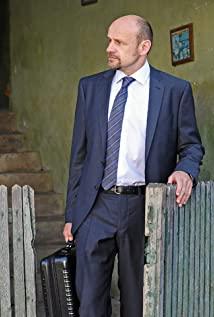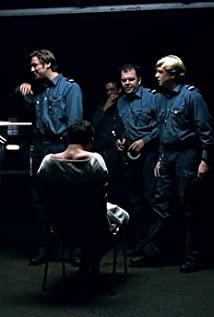Most people are other people. Their thoughts are someone else's opinions, their lives a mockery, their passions a quotation. " --Oscar Wilde
The Stanford Prison Experiment is based on the "Stanford Prison Experiment." Philip Zimbardo, one of the most authoritative psychologists in the United States, led the experiment: a number of "good people" with normal psychology were placed in a simulated underground prison, and some of them acted as prison guards and some as prisoners. lasts for 15 days. The purpose of the experiment is to test people's irritability. In extreme cases, where violence is not allowed, how will they behave when they enter their roles? In this story, the entire experiment was monitored, and on the first day, both sides (guards and prisoners) were relatively relaxed, but contradictions emerged. The next day, the conflict intensified, and the two sides confronted each other. On the third day, a few prisoners began to provoke because they thought it was a game. There were no injuries or violence. Prison guards took relative measures in a non-violent situation. They were humiliated, sprayed with a fire extinguisher, stripped naked, and the prison leader was taken out of surveillance to be given special "care". On the fourth day, someone develops anxiety and extreme fear. Out of control and in conflict with the early warning, the first violent incident occurred. A prison guard was injured, and a prisoner was stunned. On the fifth day, the prison guards overstepped their authority and held the monitoring experimenters in custody. They violently abused the prisoners, leading the prisoners to mobilize everyone to escape, and two were killed and three injured in the process.
nature of man
This is an experiment, and science is rational. In the experiment, everyone gradually got used to this role, and the prison guards thought they could not stop the experiment. They thought it was a manifestation of respect for the experiment. It's actually an excuse for them; they've gotten used to being a prison guard and getting a never-before-seen pleasure out of abusing prisoners. Once a person is endowed with supreme rights, when all his actions are no longer bound by law, his moral bottom line gradually decreases. We can assume that most of us have fantasies about being given superpowers. How would you feel? I don't know if you ever thought like me, if I could be invisible like BM, I would go to the women's bathroom and peek at the girls taking a bath. The prison guard in the film is in this situation; the difference is that it's real. Before getting out of control, a prison guard used a black box to close prisoners, and this was even allowed by the professor. The professor firmly believes that the experiment should be strictly implemented. Only in extreme cases will there be more realistic responses and unexpected results. He didn't know that human nature should trump experimentation. This can't help but remind me of the Nazi human experiments and the brutal actions of Unit 731. After losing control of her emotions, the professor was injured, and the female doctor was raped by the prison guards. After Zhang Chunru wrote "The Rape of Nanjing", she wrote on the title page: "I am not recording the Nanjing Massacre because of hatred of the Japanese, but because I hope that mankind will keep this history in mind and prevent such a thing from happening." But during the investigation, a more frightening fact was discovered: the potential of human beings to do evil is unlimited. Those Japanese who participated in the Nanjing Massacre were given "superhuman" rights, but they were all ordinary people. Most of them were farmers. I recently watched Jiang Wen's "Devils Are Coming," and it has similarities with this film, one of which is the spirit of independence.
spirit of independence
This experiment reminded me of the Yale Shock Experiment. It is an experiment in social psychology, like the Stanford Prison Experiment. When it comes to authority, many times when we reject it in our hearts, we silently endure the torment of our conscience because it prevents us from realizing the unity of knowledge and action. It is too difficult to have an independent personality. We have been taught materialism since childhood, to learn the lessons of experience. More of us are empiricism. Judgments made in the face of problems are based on: 1. My personal experience What I read in books 3. What do others say? These are three main ways, in the final analysis: history. The measures taken by the prison guards in the prison are also common methods in many movies and TV shows, and they themselves are inexperienced. One prison guard kept shaking hands after inmate violence. If we should get rid of the shackles of experience on us, there is no doubt that this is idealistic transcendentalism, contrary to our traditional education, and the road is long and difficult. For example, I am very optimistic about the "Southern University of Science and Technology." It is an academy-style university, and it is a brand new attempt in China. Maybe you will ask: Isn't this a copy of the European and American models? We need the experience of our predecessors very much, and the experience of our predecessors is the driving force for us to move forward, but we must have critical thinking in our thinking, and those who are good should follow it, and those who are not good should be changed. Liang Shuming resigned as a professor at Peking University and went to the event to build in the countryside instead of copying Western-style education. History always moves forward with twists and turns. Times are different and circumstances are different. Even if we face the same thing, what was right at the time may not be right now. Someone will secretly laugh now that someone has a whole mid-part haircut. Franklin has a good saying: what we are required to do is not necessarily good; what we are forbidden to do is not necessarily bad. What we do is prescribed because people think it is good; what we are forbidden to do is because people think it is bad.
View more about The Experiment reviews


